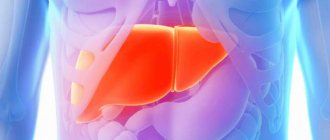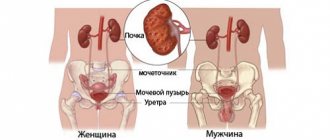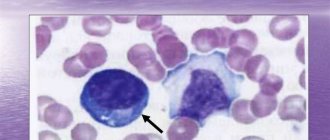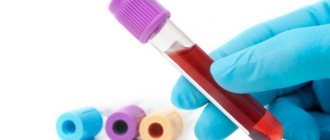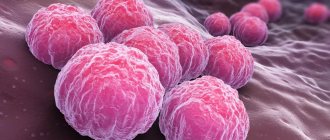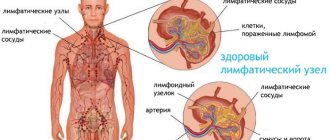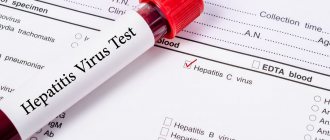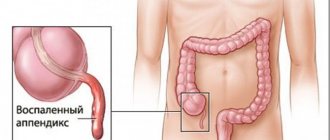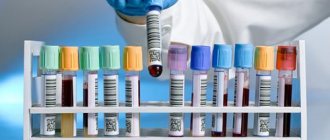- What the results say
- CT scan
At the Yusupov Hospital, doctors from the oncology clinic conduct a comprehensive examination of a patient who is suspected of having a malignant neoplasm. For instrumental procedures, we use the latest diagnostic equipment from leading global manufacturers. Laboratory studies are carried out using high-quality modern reagents.
Patients at the oncology clinic are advised by related specialists. An integrated approach to examining a patient makes it possible to establish a diagnosis of cancer at the initial stage of the tumor process, carry out radical treatment with the most effective medications and apply innovative surgical techniques.
Patients of the oncology clinic have the opportunity to undergo complex diagnostic procedures at leading research institutes with which the Yusupov Hospital cooperates. The research results are interpreted by doctors of the highest qualification category, candidates and doctors of medical sciences. Leading specialists in the field of oncology at a meeting of the Expert Council collectively establish a diagnosis and develop optimal tactics for managing the patient.
Why get tested for cancer?
Doctors note that Russian cancer patients seek help quite often already at the last, advanced stage of the disease, and, accordingly, with extremely low chances of cure. Scolding medicine, people themselves often treat their health quite negligently, ignoring preventive examinations and examinations, and sometimes, even at the first symptoms of the disease, they prefer self-medication and the advice of friends, wasting precious time. In addition, few of them are informed about what blood test shows oncology and whether the blood test changes in oncology.
Any oncologist can tell you that cancer is often preceded by a precancerous stage. Tumors, except skin cancer, affect internal organs, therefore they are invisible to the eye and may not manifest themselves in any way in the initial stages. Therefore, the sooner you begin to control the changes occurring in the body and directly in the blood, the sooner you can diagnose the onset of a serious pathology, thereby increasing the chance of recovery and life.
Oncologists at the Yusupov Hospital recommend timely laboratory diagnostics if the presence of tumors is suspected. Verification of the diagnosis in the early stages significantly increases the chance of cure.
Make an appointment
Who should get checked
In recent years, cases of breast, lung, stomach and skin cancer have increased. Therefore, regular preventive examinations and medical examinations are necessary for absolutely all people.
However, there are risk groups, people from whom should be more attentive to their own health, regularly check with a doctor and, at the slightest ailment, contact a specialist. These include:
- Active smokers. Cigarettes and other tobacco products increase the risk of cancer of the lip, mouth, larynx and lungs.
- Persons who abuse alcoholic beverages, including low-alcohol ones. They are several times more likely to develop liver and pancreatic cancer than abstainers.
- Patients diagnosed with hepatitis B and C, fatty hepatosis, and other non-alcoholic liver lesions are at high risk for hepatocellular carcinoma.
- For fair-skinned people who often get sunburned, as well as those who enjoy visiting solariums, it is important to regularly examine their skin for suspicious moles.
- Women and men over 50 years of age. In older people, the risk of developing lung, breast, prostate, and blood cancers increases.
- Carriers of human papillomavirus types 16, 18, as well as carriers of Helicobacter pylori in combination with atrophic gastritis. In such patients, the likelihood of developing cervical cancer, laryngeal cancer, and gastric carcinoma increases, respectively.
- Persons with a family history, who have undergone radiation or chemotherapy for other malignant diseases, who have been taking cytostatics or immunosuppressants for a long time.
It is also important for residents of large cities, environmentally unfavorable areas, as well as for those who work in hazardous industries and are exposed to soot, asbestos or heavy metals to be attentive to their own health and not neglect visits to the doctor.
In what cases is it necessary to undergo examination?
Any disruptions in the functioning of the body are reflected in the composition of the blood. In order not to miss the onset of malignant processes, which often occur asymptomatically, an oncology test should be carried out for the following disorders:
- inflammatory processes that cannot be treated, protracted chronic diseases;
- lack of response of the pathology to the action of drugs that previously contributed to the cure;
- a noticeable decrease in immunity;
- frequent increase in body temperature without objective reasons;
- a sharp decrease in body weight;
- inadequate reaction to odors;
- decreased appetite;
- unexplained pain;
- general weakness and malaise;
- the appearance of difficulties when swallowing food;
- prolonged cough that cannot be treated;
- uterine bleeding or unusual vaginal discharge;
- wounds and fistulas that do not heal for a long time;
- chronic constipation, the appearance of blood in the stool;
- deformations of the mammary glands;
- for preventive purposes (at least once a year).
changes in the color and shape of moles;
If the above symptoms appear, contact Yusupov Hospital. Doctors will use the latest diagnostic methods to determine their true nature.
Preparing for blood collection
To obtain reliable test results, patients should adhere to certain recommendations before taking blood:
- 2 weeks before the test, stop taking systemic medications;
- 2-3 days before the analysis, exclude fatty and fried foods and alcoholic beverages from the diet;
- stop smoking 2 hours before blood sampling;
- 30 minutes before the procedure, bring your emotional state back to normal, avoid mental and physical stress;
- In order to avoid obtaining distorted results, do not conduct analysis immediately after performing other types of examination (laboratory or instrumental).
You can eat food before a general blood test, but it is better not to eat eight hours before the test. To obtain a correct, undistorted result of a biochemical blood test, fasting is recommended before the test (8-12 hours). It is allowed to drink liquid in the form of purified still water.
Cytological examination
This is the most informative type of laboratory examination, which accurately determines the presence or absence of malignant cells.
The analysis consists of taking a tiny section of tissue in which the presence of a cancerous tumor is suspected, with further examination under a microscope. Modern endoscopic technologies make it possible to collect biomaterial from any organ - skin, liver, lungs, bone marrow, lymph nodes.
Cytology is the study of cellular structure and function. The cells of a cancerous tumor differ significantly from the cells of healthy tissues, so laboratory testing can accurately determine the malignancy of the neoplasm.
The following biomaterials are used for cytological examination:
- imprints from the skin, mucous membranes;
- liquids in the form of urine, sputum;
- swabs from internal organs obtained during endoscopy;
- tissue samples obtained by puncture with a thin needle.
This diagnostic method is used for preventive examinations, clarifying the diagnosis, planning and monitoring treatment, and identifying relapses. It is simple, safe for the patient, and results can be obtained within 24 hours.
Is it possible to determine oncology from a blood test?
A blood test may indicate an imbalance in the body and the need for additional research to identify the exact cause of the changes occurring. Indicators may change due to previous illness, alcohol abuse, smoking, pregnancy and many other conditions.
Not all tumor markers are specific. Oncologists at the Yusupov Clinic strongly recommend that patients not rush to conclusions, since only an oncologist can correctly interpret all test results if cancer is suspected.
Whether a general blood test will show oncology is a question to which it is impossible to give a definite answer. Clinical analysis is a basic study, the results of which can be used to judge certain disorders that require a more detailed examination. It is impossible to accurately determine the presence of malignant tumors. In case of unfavorable changes in blood composition, an experienced general practitioner will prescribe a blood test for cancer markers, which will finally confirm or rule out abnormalities in the general blood test for oncology.
Make an appointment
Forecast
It should be understood that a diagnosis of cancer cannot be made using just one blood test. It is necessary to carry out many procedures to clarify or refute suspicions. In this case, the prognosis depends on the qualifications of the doctor, who will first verify the presence of breast cancer and then prescribe treatment.
Moreover, the medications prescribed depend on what test results are obtained. Expensive tests help determine the correct treatment. This is also influenced by the location of the tumor and its degree of development. All procedures performed should help not only in identifying cancer, but also in determining treatment methods that, if not cure, will at least increase the patient’s life expectancy.
Examination if a tumor is suspected
Oncologists begin examining the patient with questioning, examination, palpation, percussion, and auscultation. After the clinical study, a list of necessary tests and instrumental diagnostic studies is drawn up.
Clinical blood test for oncology: indicators
In accordance with the location and size of the tumor formation, a clinical blood test shows cancer in cases where the level of leukocytes is increased, platelet and hemoglobin levels are decreased, and lympho- and myeloblasts are detected. A particularly alarming sign is an increased number of young (immature) forms of leukocytes.
Complete blood count: ESR indicators
The results of a general blood test for oncology show an increased ESR (erythrocyte sedimentation rate). However, an increase in this indicator is also observed in other pathologies, for the treatment of which anti-inflammatory and antibacterial therapy is prescribed. If such treatment is not effective and the ESR is still high, the patient may be suspected of having a malignant tumor.
However, these indicators are not absolute confirmation of the presence of cancer. For a more detailed study, a biochemical blood test is prescribed; in case of cancer, a test for tumor markers is prescribed.
Analysis of urine
Cancer of the urinary system manifests itself as blood in the urine.
Urine may also contain ketone bodies, which indicate tissue breakdown. However, these symptoms also accompany diseases not related to oncology, for example, they indicate the presence of stones in the bladder or kidneys, or diabetes mellitus. For diagnosing other types of cancer, urine analysis is not informative. It cannot be used to judge the presence of cancer, but deviations from the norm indicate health problems. If the deviations are serious and confirmed by the results of other basic tests, then this is a reason to conduct special tests to determine cancer.
The exception is multiple myeloma, in which specific Bence Jones protein is determined in the urine.
For the study, morning urine is collected in a sterile container, which can be purchased at a pharmacy. You need to take a shower first.
What do tumor markers show?
At the Yusupov Hospital, laboratory assistants determine the number and ratio of tumor markers in biological fluids. Tumor markers are protein compounds (antigens) that are produced by cancer cells. They are present in small quantities in a healthy body. In the presence of a malignant tumor, the level of tumor markers increases. Determination of tumor markers allows:
- confirm or exclude the presence of a malignant tumor;
- identify suspected metastases from the cancer process;
- monitor the effectiveness of treatment;
- clarify the nature of the tumor (benign or malignant);
- evaluate the effectiveness of cancer treatment.
Depending on the expected location of the tumor, oncologists at the Yusupov Hospital take an individual approach to the choice of tumor marker:
- The level of CA 125 antigen is determined for endometrial cancer of the uterus or ovaries;
- If cancer of the digestive organs is suspected, the level of tumor markers CA 72-4, CA 19-9 is examined;
- The presence of a malignant breast tumor is indicated by an increased concentration of the tumor marker CA 15-3 in the blood;
- Identification of tumor markers CEA, NSE, CYFRA 21-1 may indicate the localization of a malignant tumor in the lungs and other organs;
- In liver cancer, the concentration of AFP-embryonic glycoprotein increases.
To perform the test, nurses draw blood from a vein on an empty stomach. The study is carried out several times to assess the amount and dynamics of cancer markers in the blood.
What the results say
Based on the results of a biochemical blood test, one can judge the localization of the tumor formation, the stage of its development, the size of the tumor, and possible reactions of the body.
Due to the fact that the process of tumor growth is accompanied by the release of specific antigens depending on which organ it affects, the rate of increase in the amount of these antigens in the blood allows us to predict how quickly oncopathology develops and determine the prognosis. Often, thanks to the identification of tumor markers, pathology can be diagnosed before the appearance of clinical symptoms, that is, in the early stages of the disease, which, with adequate treatment, significantly increases the chances of recovery.
There are many other tumor markers, and new ones are constantly being created, with the help of which doctors at the Yusupov Hospital have the opportunity to identify other forms of malignant pathologies.
Make an appointment
PSA level determination
PSA levels are measured to detect prostate cancer. Prostate prostate specific antigen (PSA). A small amount of the hormone enters the blood. With prostate cancer, the concentration of PSA in the blood increases several times. A high level of PSA in the blood may indicate the presence of an adenoma, a benign tumor of the prostate gland. Urologists recommend that all men over 50 years of age donate blood to determine PSA levels once a year. Patients whose immediate male relatives have had prostate cancer should visit a urologist upon reaching 30 years of age and have their blood tested for PSA.
Pap test for cancer
The study is performed if a woman is suspected of having cervical cancer. The gynecologist takes a smear and sends it to the histology laboratory. Using this study, it is possible to identify a precancerous condition, when the cells have not yet turned into malignant ones, but their structure has begun to change.
This test should be carried out three years after the start of sexual activity. In the future, the examination must be carried out once every 2 years, and upon reaching 50 years - once every 5 years. Two days before taking a smear, a woman should abstain from sexual intercourse, not use vaginal suppositories, douche, or use vaginal tampons. The result may be false if there is inflammation or infection of the genital organs.
Urine and stool analysis
A general urine test is informative for multiple myeloma. Laboratory technicians detect Bence Jones protein in urine. Elevated levels of creatinine and urea may indicate increased protein breakdown, cancer toxicity, or deterioration of kidney function.
A stool occult blood test can detect colon cancer in its early stages. This allows for radical treatment of the disease and improves the prognosis.
Instrumental methods for diagnosing malignant tumors
Tests of biological fluid for cancer do not always provide a clear picture, and the doctor is forced to resort to instrumental diagnostic methods. The Yusupov Hospital is equipped with the latest equipment from European, Japanese, and American manufacturers, which makes it possible to detect a cancerous tumor of any location at an early stage of the cancer process.
CT scan
Using computed tomography scanners, doctors obtain layer-by-layer images of internal organs. Modern equipment makes it possible to perform tomography of the whole body or one or several organs, regardless of the patient’s weight.
Magnetic resonance imaging
With the help of magnetic resonance imaging, doctors obtain an accurate image of internal organs, bones, and soft tissues using pulses of electromagnetic radiation and a magnetic field. The advantage of this diagnostic method is its harmlessness. When using modern devices, patients do not receive radiation exposure. Doctors usually conduct magnetic resonance imaging of the brain, spine, muscles, and joints.
Mammography
Mammography is used to diagnose breast tumors. Modern expert-class devices installed at the Yusupov Hospital make it possible to detect volumetric formations with a diameter of several millimeters. The study is safe and does not cause discomfort in women. It is carried out regardless of breast size. The research results are presented in digital images or on film. Mammologists recommend that women over the age of 40 undergo preventive examinations annually. To rule out the presence of a malignant neoplasm, you should visit a doctor and have a mammogram or ultrasound examination of the mammary glands.
Make an appointment
Scintigraphy
This is a method of radionuclide diagnostics using gamma rays. With its help, doctors detect malignant tumors 6-12 months earlier than using other laboratory and instrumental methods. During the study, it is possible to visualize even the smallest volumetric formations, determine their nature and exact location. Scintigraphy is used to study the skeletal system, brain, mammary glands, lymphatic system, salivary glands, heart, liver and kidneys.
The device can operate in scintigraphy mode of the whole body or targeted projection of certain areas. Using scintigraphy, oncologists evaluate the effectiveness of chemical and radiation therapy and determine the viability of implants in bone tissue. The procedure is not performed on pregnant women and patients whose condition is assessed as serious.
Ultrasound
At the Yusupov Hospital, functional diagnostic doctors perform ultrasound examinations using the latest expert-class devices. They allow you to see a clear picture and get a high-quality image. Differential diagnosis of soft tissue tumors is carried out using elastography, a method based on visualization of soft tissues, determination of their elasticity and other characteristics. Oncologists prescribe ultrasound examination of the following anatomical areas:
- Thyroid gland;
- Lymph nodes;
- Mammary glands;
- Hearts;
- Abdominal and pelvic organs;
- Prostate;
- Kidney.
Biopsy
Used to determine the nature of the tumor process. Surgeons obtain pieces of tissue that are sent to the laboratory for histological examination using the following techniques:
- Stereotactic trephine biopsy - used in the diagnosis of microscopic neoplasms with a diameter of 1-2 mm, which are located in the mammary glands;
- Ultrasound-guided fine-needle biopsy – used primarily to extract the contents of breast cysts;
- Trephine biopsy using ultrasound – performed using a biopsy gun;
- Vacuum aspiration trephine biopsy – allows you to obtain large fragments from tissues;
- Core needle biopsy – used to remove a large tissue sample;
- Incisional biopsy - involves excision of a piece of tumor under local anesthesia;
- Excisional biopsy is a mini-surgery during which the surgeon removes the entire tumor or excises part of it.
Pathological examination
Morphologists at the Yusupov Hospital conduct a pathological examination of pieces of pathologically altered tissue using special equipment.
Dermatoscopy
Using dermatoscopy, the nature of skin formations is determined. The study is necessary if there are a large number of pigmented moles on the skin, changes in their shape and color. It allows you to detect skin cancer and melanoma at an early stage.
When should you undergo cancer screening?
To undergo a comprehensive study to rule out a tumor process, contact oncologists at the Yusupov Hospital. Cancer screening is mandatory in the following cases:
- After reaching the age of forty;
- If there is a hereditary predisposition to malignant neoplasms;
- If you live in an environmentally unfavorable area;
- With constant emotional overload, stress;
- If during the course of work a person comes into contact with harmful substances.
To make an appointment with a doctor at the oncology clinic, call the contact center phone number any day of the week. Registration is carried out around the clock.
Make an appointment
Author
Alexey Andreevich Moiseev
Head of the Oncology Department, oncologist, chemotherapist, Ph.D.
